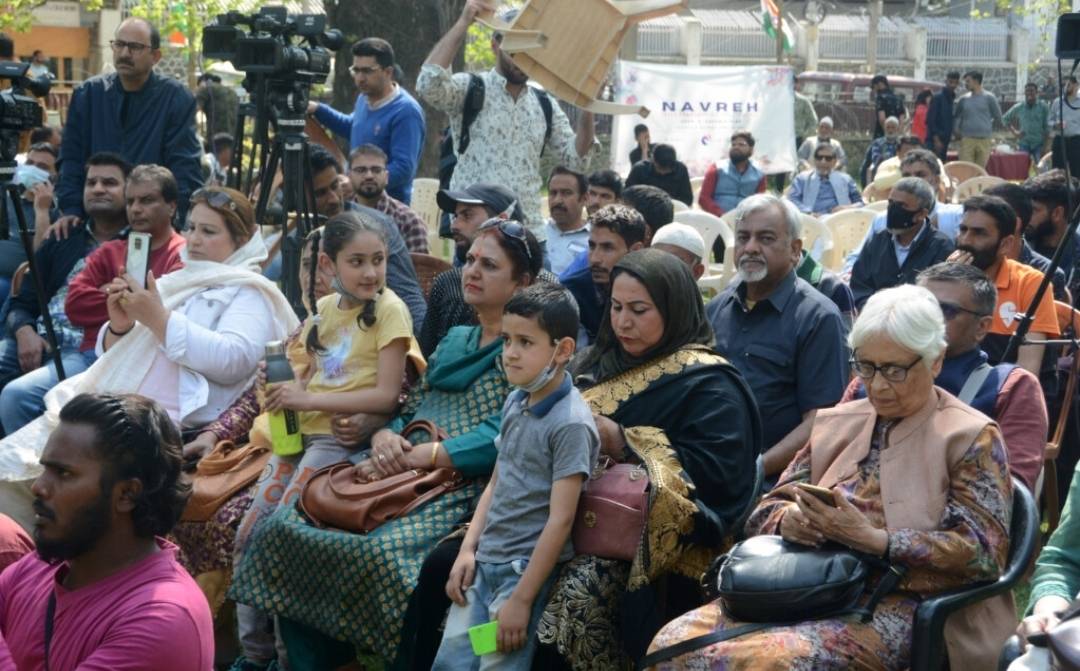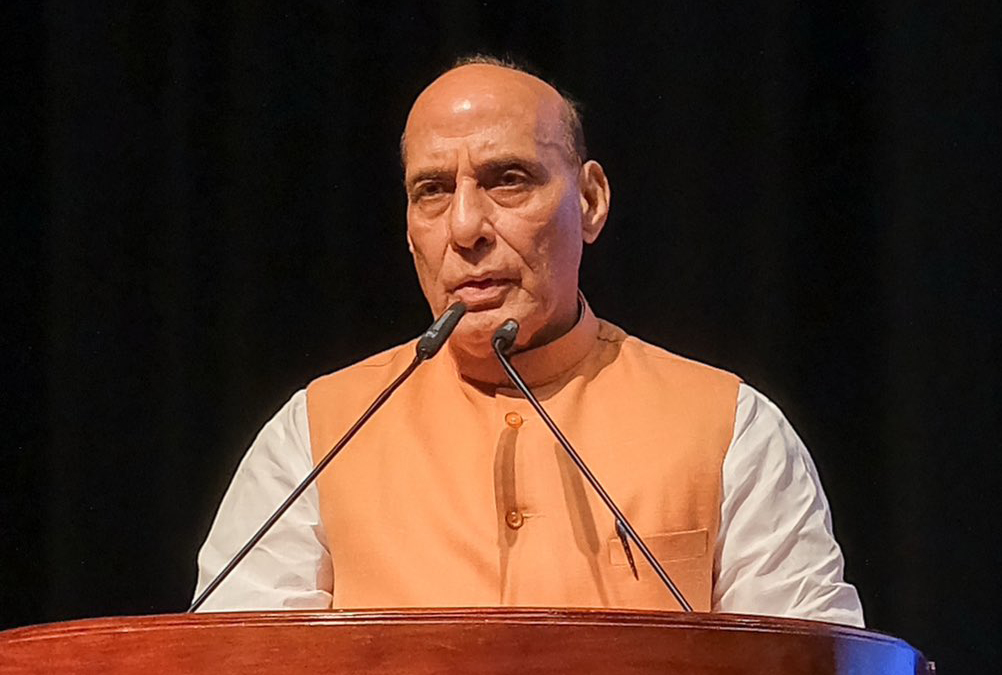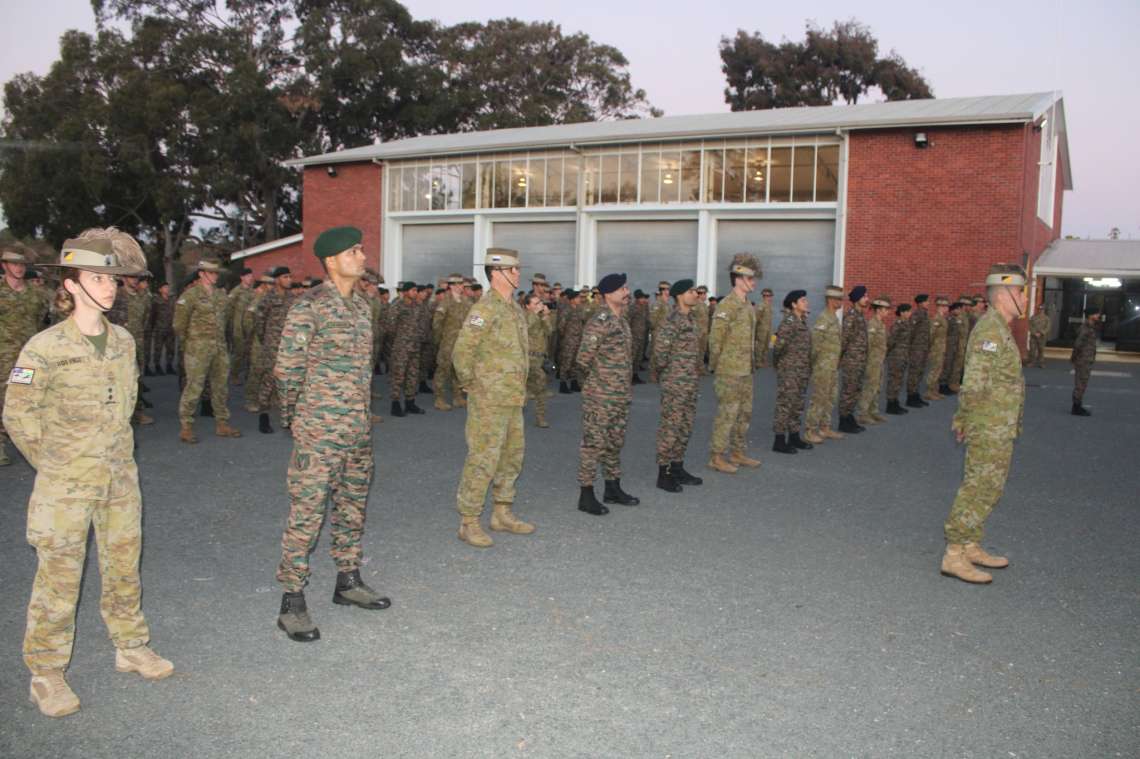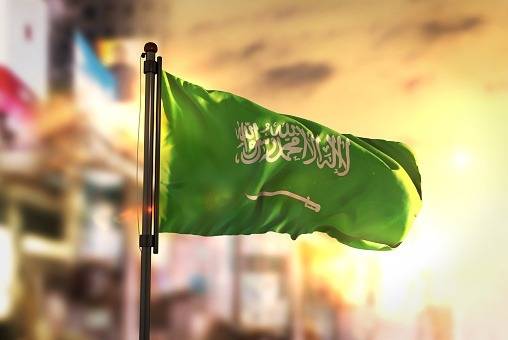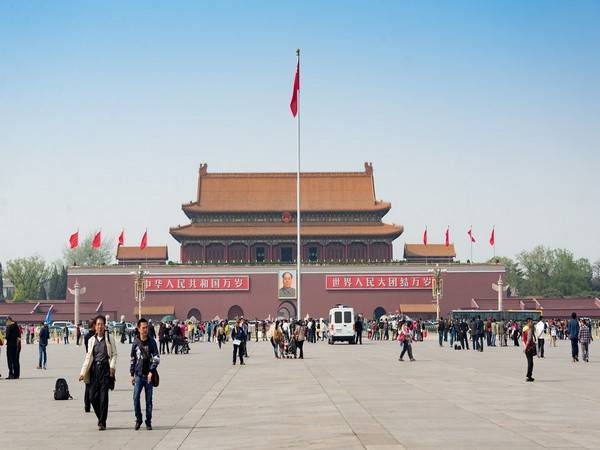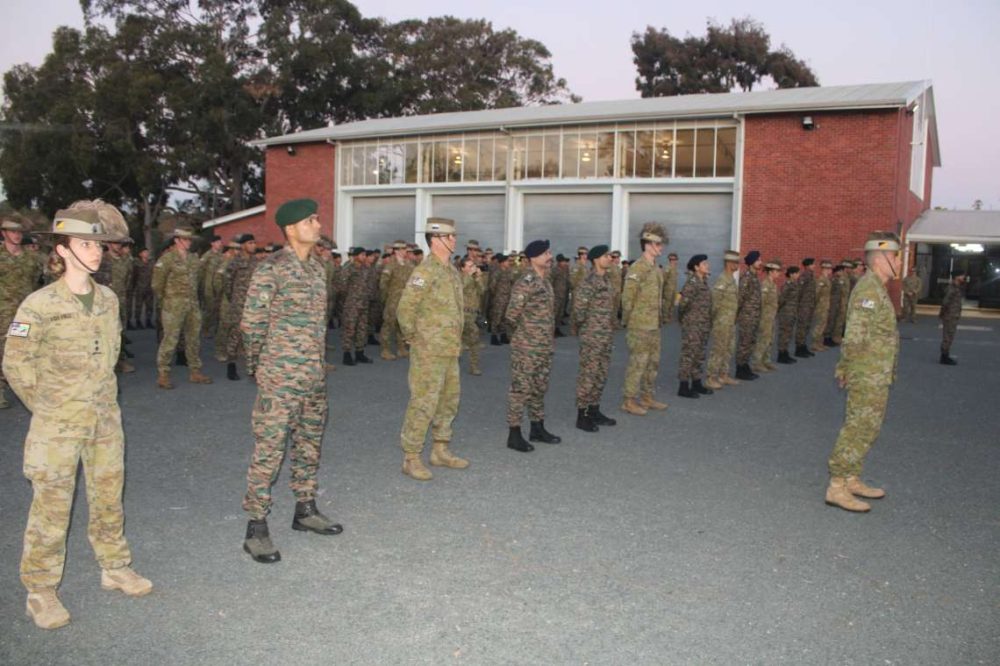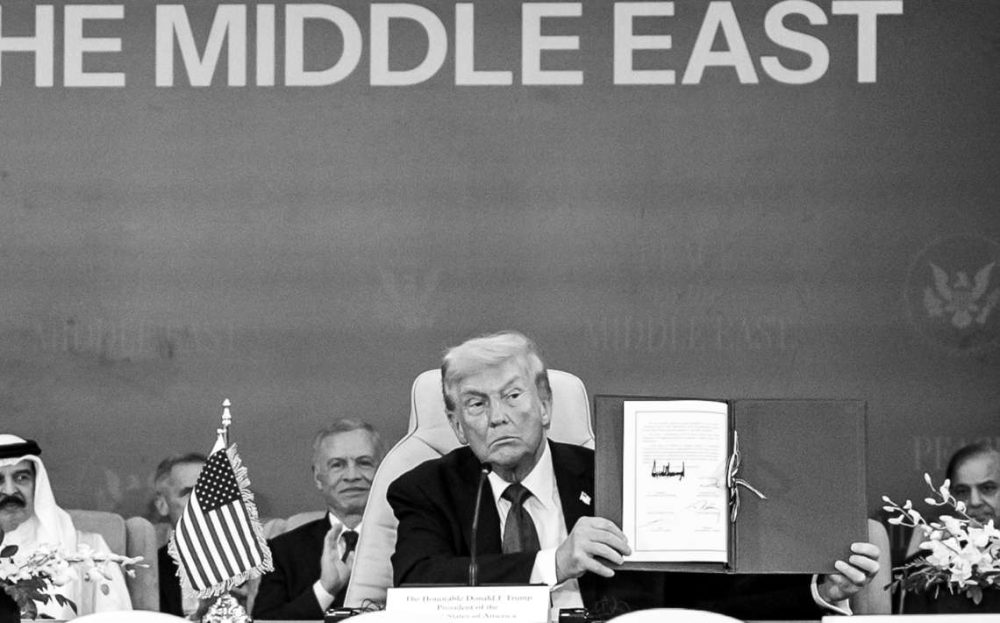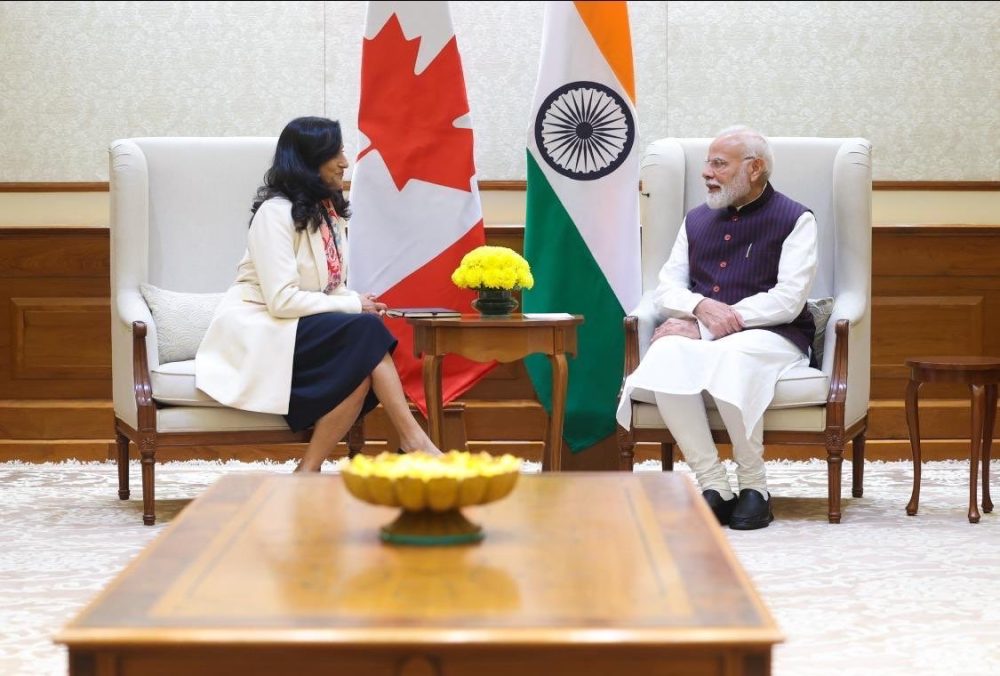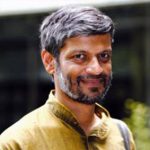Sharing their happiness and lending them support were the local Muslims. Under the banner of the J&K Peace Forum, they joined an inter-community Navreh Milan at the Sher-e-Kashmir Park in Srinagar, which has not seen anything like this in the past three decades…reports Deepika Bhan
Over the past few days, certain events in Kashmir have come as a surprise.
Groups from the majority and minority communities, which had been torn apart following the Pakistan-supported terror being unleashed in the valley in 1989-90, are gradually trying to make a new beginning by putting the past behind them.
These groups have been working silently and cautiously to remove mistrust and build confidence. Their first step was to hold a ‘Navreh puja’ followed by ‘Navreh Milan’ to celebrate the beginning of the Kashmiri New Year in Srinagar on April 2. The day, incidentally, was also the eve of the month of Ramzan.
Atop the Hari Parbat hillock located in the heart of Srinagar, amid the chanting of hymns, tolling bells and the blowing of conch shells, the city looked as if it had travelled back in time by 32 years when the Mata Sharika Temple used to be thronged by Kashimiri Pandits on the occasion of ‘Navreh’.
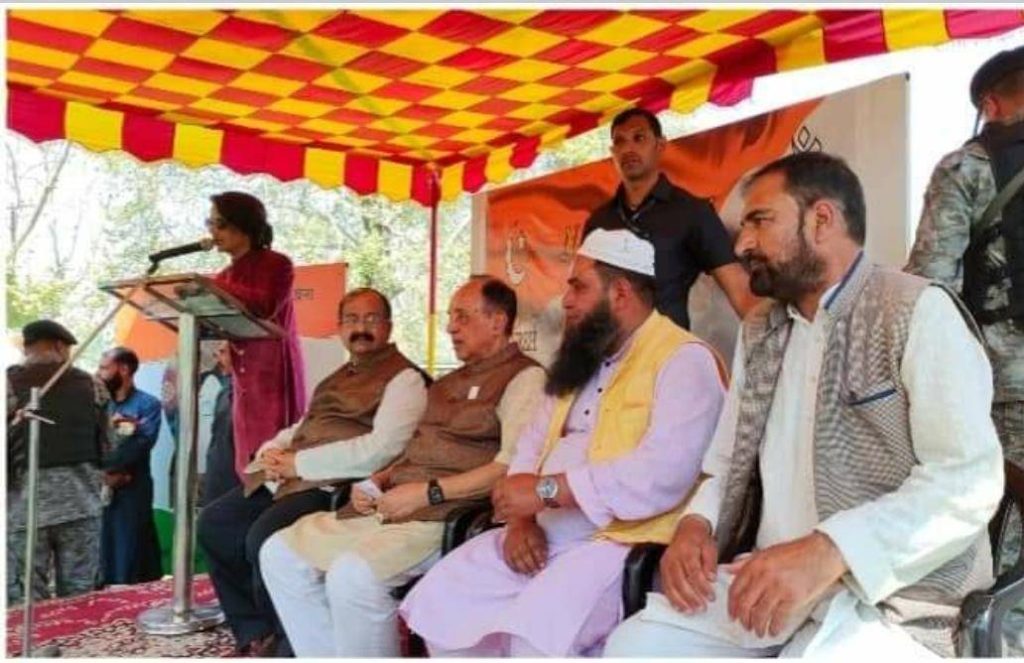
Navreh meant a special puja at the temple, a simple place of worship that has stood there for ages overlooking the valley below. For the past 32 years, since Kashmiri Pandits were forced out, the temple bells had fallen silent, but on Saturday (April 2), the past came alive when hundreds of Kashmiri Pandits performed the worship together.
What also came alive was Hindu-Muslim bonhomie, which is the true essence of Kashmiriyat, but had fallen apart as a result of the targeting of the minority community in the valley. Nearly seven lakh Kashmiri Pandits were forced to flee the valley in 1990 and subsequent years after Pakistan-backed terrorists wreaked havoc.
After more than three decades, the silence was broken and the two communities came together to celebrate the age-old festival.
For the worshippers, it was a very emotional moment of having been able to do something fearlessly that they have yearned for in all these 32 years of displacement. Each one of them prayed for peace in the valley, their return and living together with the majority community as was the case three decades ago.
Sharing their happiness and lending them support were the local Muslims. Under the banner of the J&K Peace Forum, they joined an inter-community Navreh Milan at the Sher-e-Kashmir Park in Srinagar, which has not seen anything like this in the past three decades.
At the Milan, scenes of Hindu-Muslim bonhomie were seen. Local Kashmiri Muslims in good numbers participated in the celebrations and artistes from the community presented skits and songs.
“Such an activity has not been seen in the valley after we left. It is really heartening to see the response,” Satish Mahaldar, Chairman of the J&K Peace Forum, said after the Navreh Milan.
He said the presence of the majority community during the festive occasion sent across a positive message to the Kashmiri Pandits, and added that common folk in the valley want to live peacefully and return to the pre-1990 years.
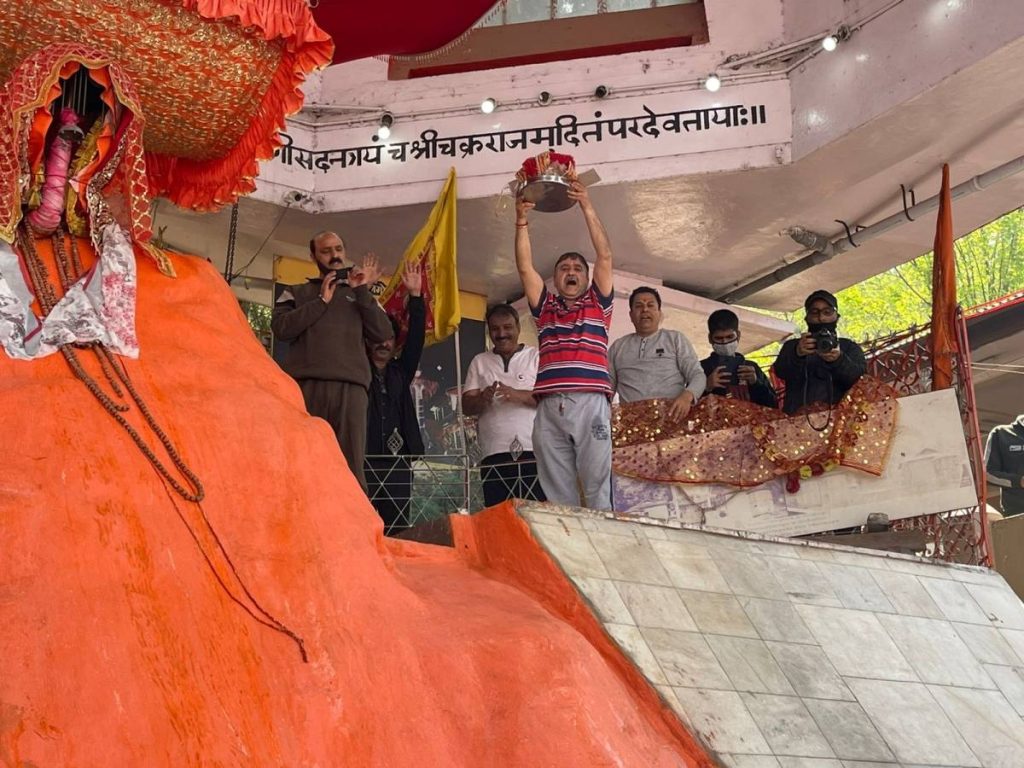
The good turnout of local residents for the Navreh Milan has come as a surprise for many, but for the organisers, it was all about tapping the latent emotion that has got overwhelmed by the terror threat.
“Kashmiri Pandits have suffered, we have suffered. They belong to this place. They have to return,” said Ali Mohammad, the Forum’s general secretary. “The event we organised was not a political event. We are common people trying to get together again. It is an effort by the common people.”
The good number of Muslims who attended the event have sent out a positive message to the organisers. They said more such events needed to be done to bring the two communities together. “The more interaction happens, the better it will be for all. We have to live together and for that, concrete steps need to be taken,” Mahaldar said.
The fact that terrorism continues to raise its ugly head, albeit occasionally, is proving to be the hurdle in the mass rehabilitation of the displaced Kashmiri Pandit community. Last year, a few targeted killings sent shock waves among the minorities in the valley and suddenly everything seemed to be falling apart all over again.
Peace in the valley continues to be fragile and for Kashmiri Pandits to permanently return to their homes, a lot needs to be done at the local level.
The Navreh Milan should be an eye-opener for those who have supported the separatist agenda and created a wedge between the majority and the minority in Kashmir. The common Kashmiri, fed up with the continued violence in the valley, longs to go back to the pre-1990 era when people lived peacefully and cohesively.


